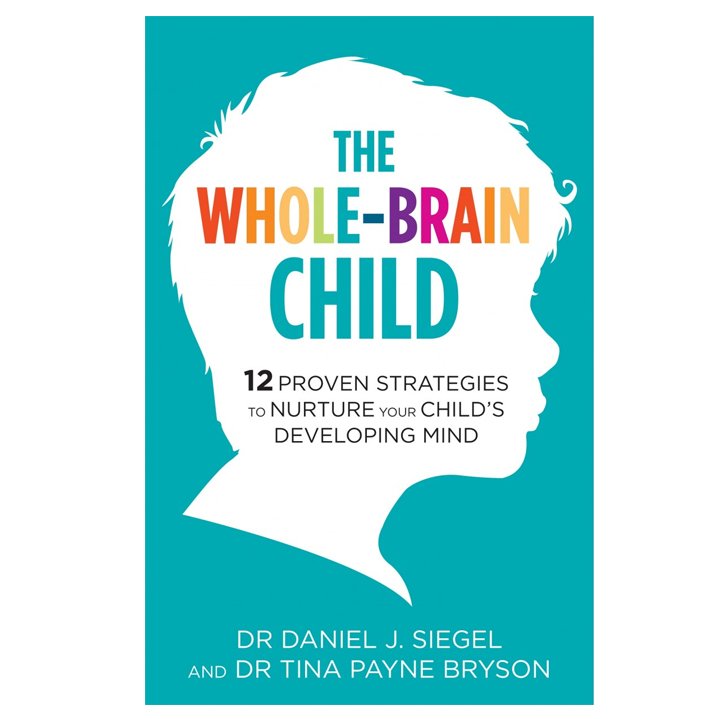Resource Review: The Whole-Brain Child
The Whole Brain Child: 12 revolutionary strategies to nurture your child’s developing mind is a collaborative work between Daniel Siegel and Tina Payne Bryson. Daniel Siegel is a neuropsychiatrist and Tina Payne Bryson is a parenting expert.
Together, in this book, Siegel and Bryson combined their expertise to share practical, science-based strategies for parents aimed at empowering parents to work with their children's developing brains to manage the day-to-day struggles of family life. They structure these skills to work towards cultivating healthy emotional and intellectual development. Siegel and Bryson utilize strategies of neuroscience, developmental psychology, and attachment theory to formulate easy-to-understand strategies for parents and caregivers.
Pros:
This book lives up to the title in that it truly does discuss 12 “whole-brain “strategies based on neurological principles and research on a child's brain. The readers of this book will be taken through 12 individual principles of child neuroscience, and be coached in the application of these principles.
Siegel and Payne have worked to make this book very user-friendly. Each of the principles is thoroughly explained, and then examples of implementation of the strategies are given with each concept. These examples include representative dialogue between a parent and child about how the skills might be implemented, cartoon drawings, and other user-friendly resources.
Most of the strategies are fairly straightforward and easy to implement with a bit of effort. One of the major advantages of this book is the ease at which many parents report that some strategies can be implemented or attempted in their homes.
Cons:
The strategies explained in this book do you require a significant amount of emotional control and maturity on the part of the parents. In the therapy world, we often explain that we can only regulate another person to the extent to which we can regulate ourselves. Some of the principles in this book may require additional levels of regulation, posing some challenges for parents earlier in their emotional health journey.
Some strategies may seem juvenile or overly simplistic to some.
For parents hoping to promote self-growth and increase their parenting knowledge:
If you are the parent of a child looking to increase your understanding of your child’s responses and work towards more effective behavioral management strategies in your home, this book may be extremely helpful and enlightening for you. The book is written in a way that parents, caregivers, and those with very little child development background may be able to understand the neuroscience behind certain responses. The writers address ways that parents or caregivers may also be empowered to more effectively manage the behaviors that they may be seeing. The authors truly have written the book in an effort to empower parents to nurture connection, intelligence, emotional health, and overall well-being and children.
For child therapists and other professionals:
For professional therapists, child therapists, and parenting professionals, this book is one of the principal works of literature that guide much of our knowledge and training on child development and brain-based child research. The principles in this book are evidence-based and highly researched. Many of the examples and strategies are given can serve as tools and resources for the families that you may work with. As a therapist who works for children and families, I have frequently referenced this book for many families who have found it beneficial. For professionals who have spent significant time working in the field of child psychology and neuroscience, some of the principles may feel somewhat basic and limited, but keep in mind, that the book was written to parents and laypersons, so it reads as such.
Final thoughts:
Whether you are a parent, professional, caregiver, or simply interested in working with children effectively, the whole brain child, 12 revolutionary strategies to nurture your child’s developing mind is a great basic resource for understanding child brains and how to work appropriately and effectively with them. It’s a quick read, full of cartoons, resources, and step-by-step guides to implementation, so in my professional opinion, I definitely think it’s worth your time and energy.
Interested in reading The Whole Brain Child: 12 revolutionary strategies to nurture your child’s developing mind Click here for purchase options.
(Links are included for convenience to readers. No benefit or compensation is received by Salyer Counseling Group)
If your family could benefit from child or teen therapy or other forms of trauma therapy, anxiety therapy or depression therapy, we would love to connect with you. Our team of therapists is ready to help serve you both in person at our Arlington, TX based counseling group or online through our online therapy services.



